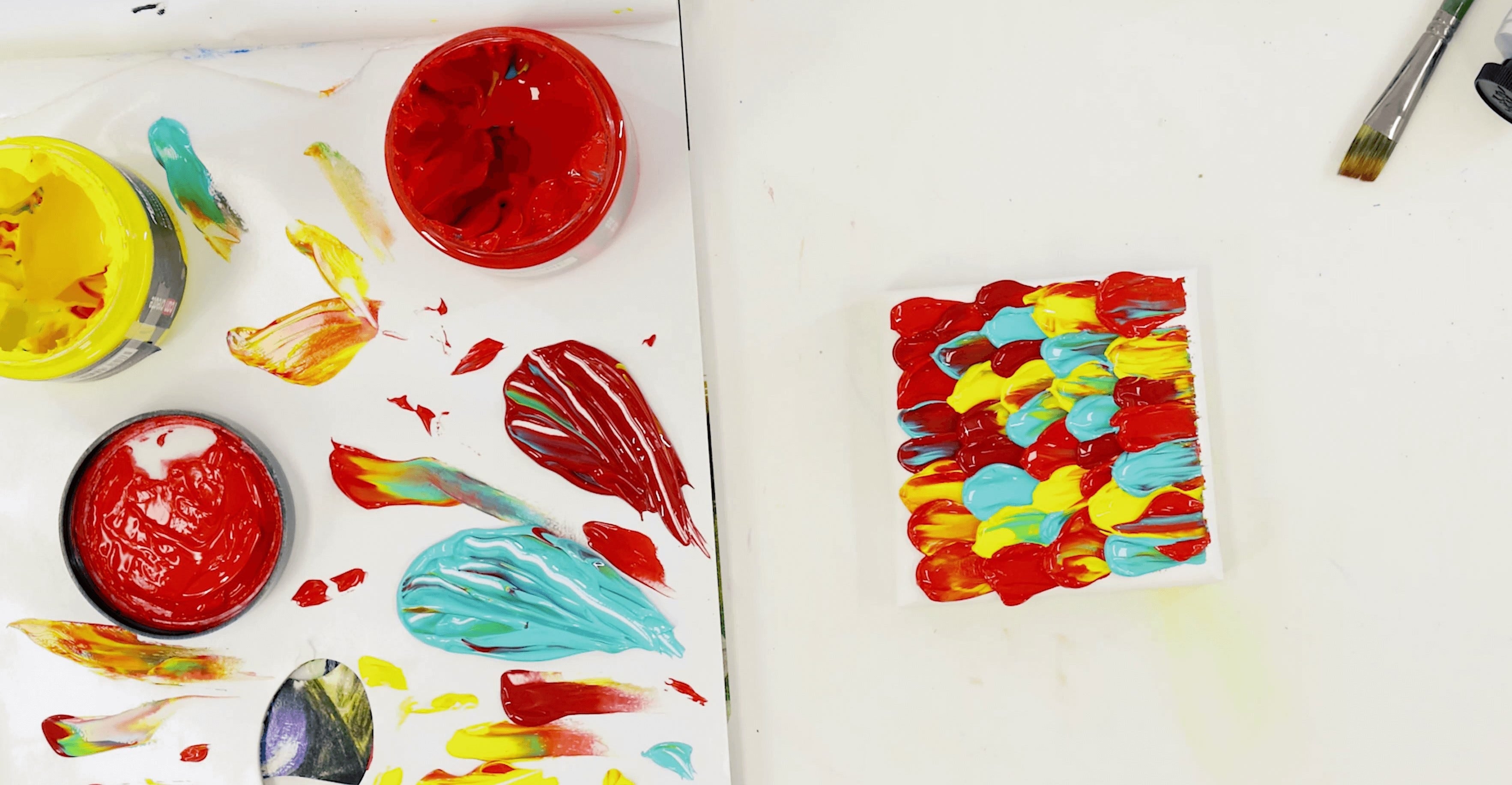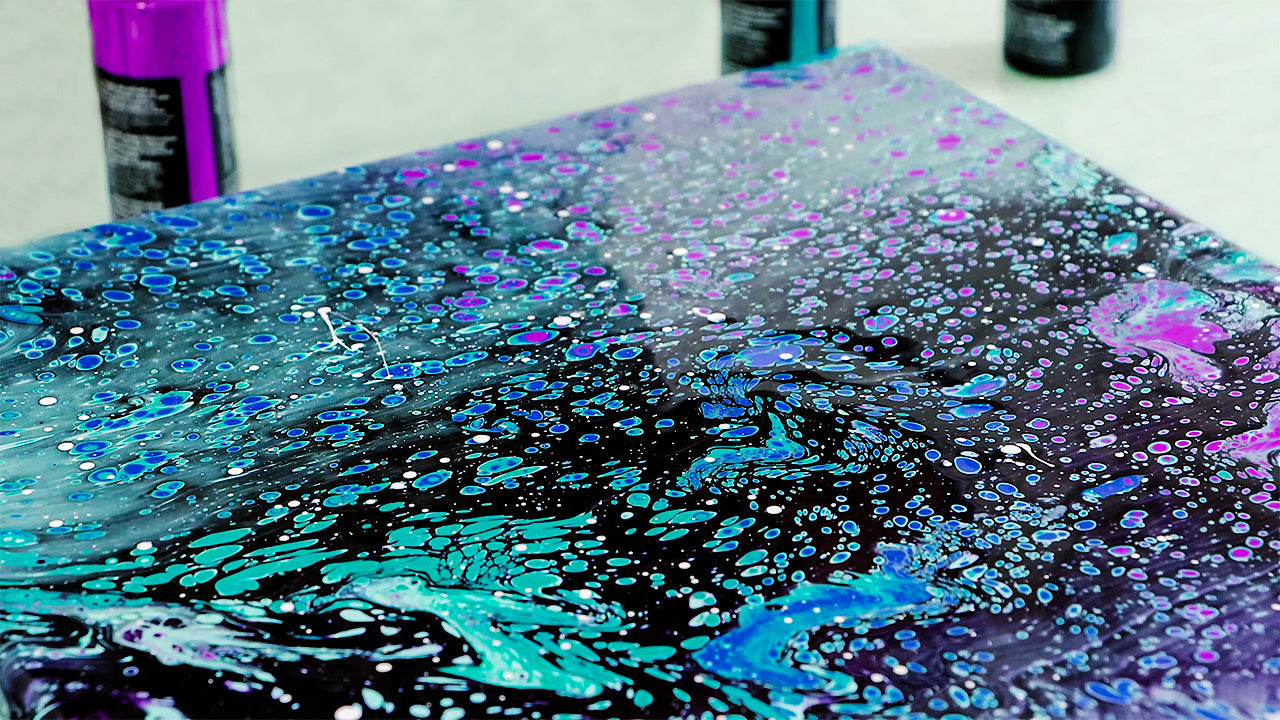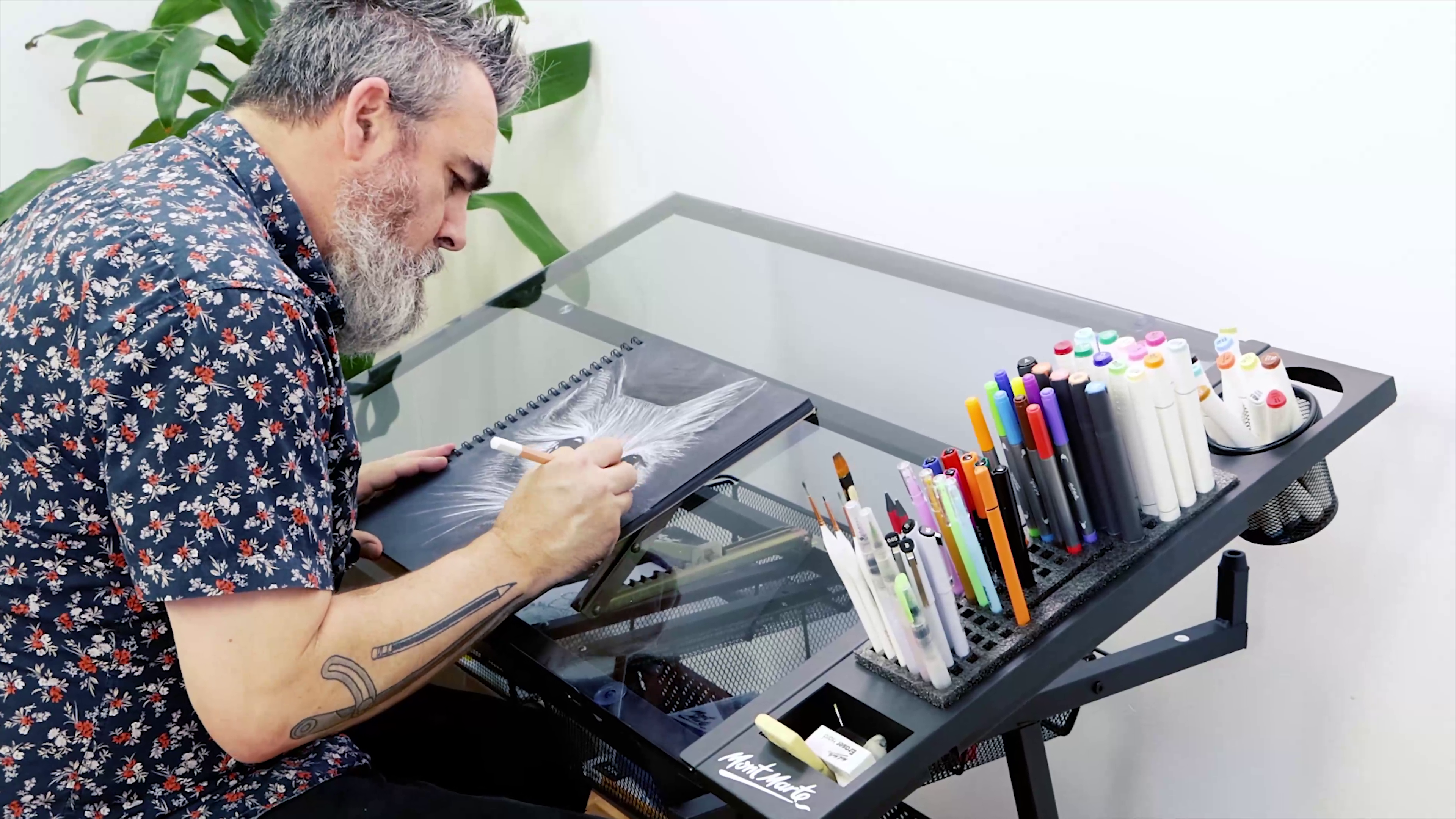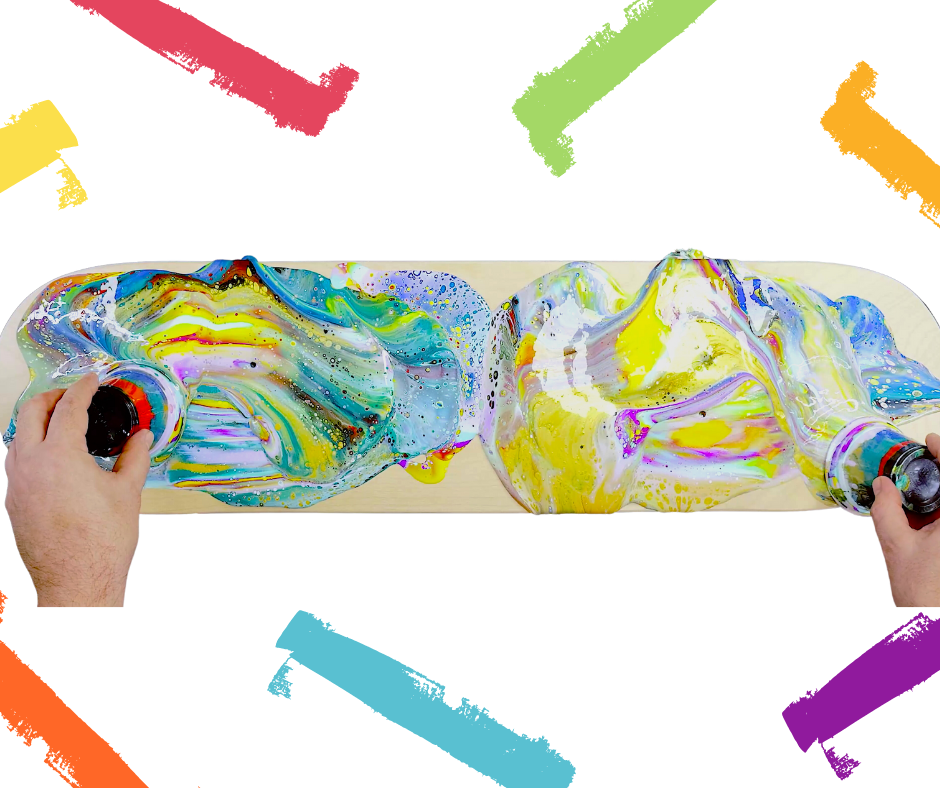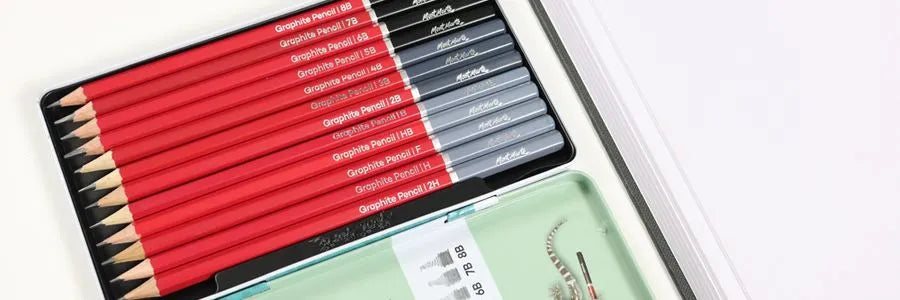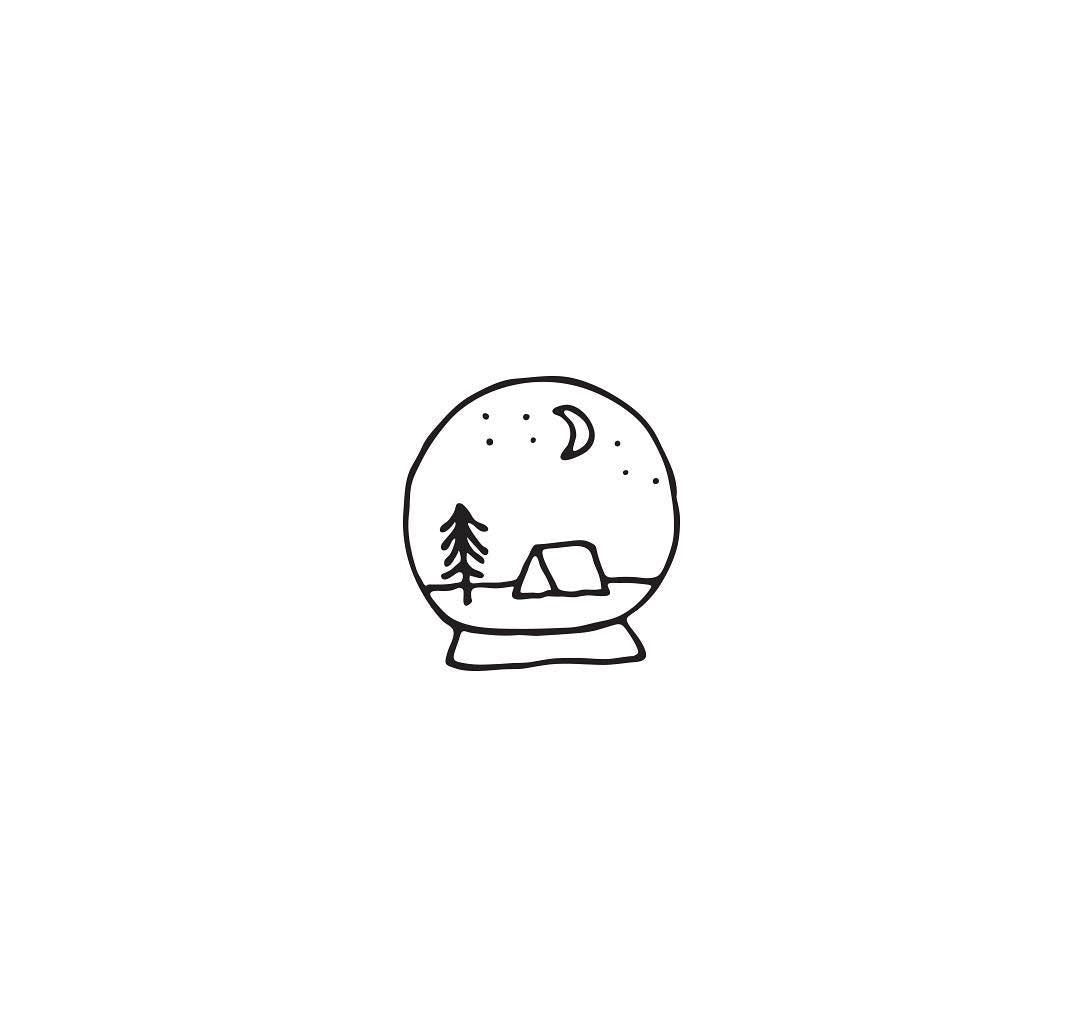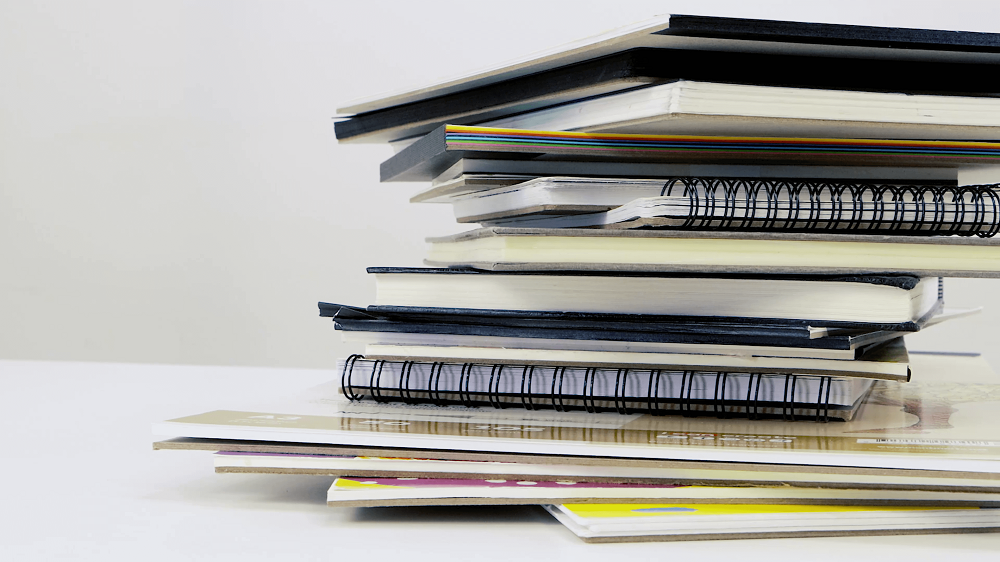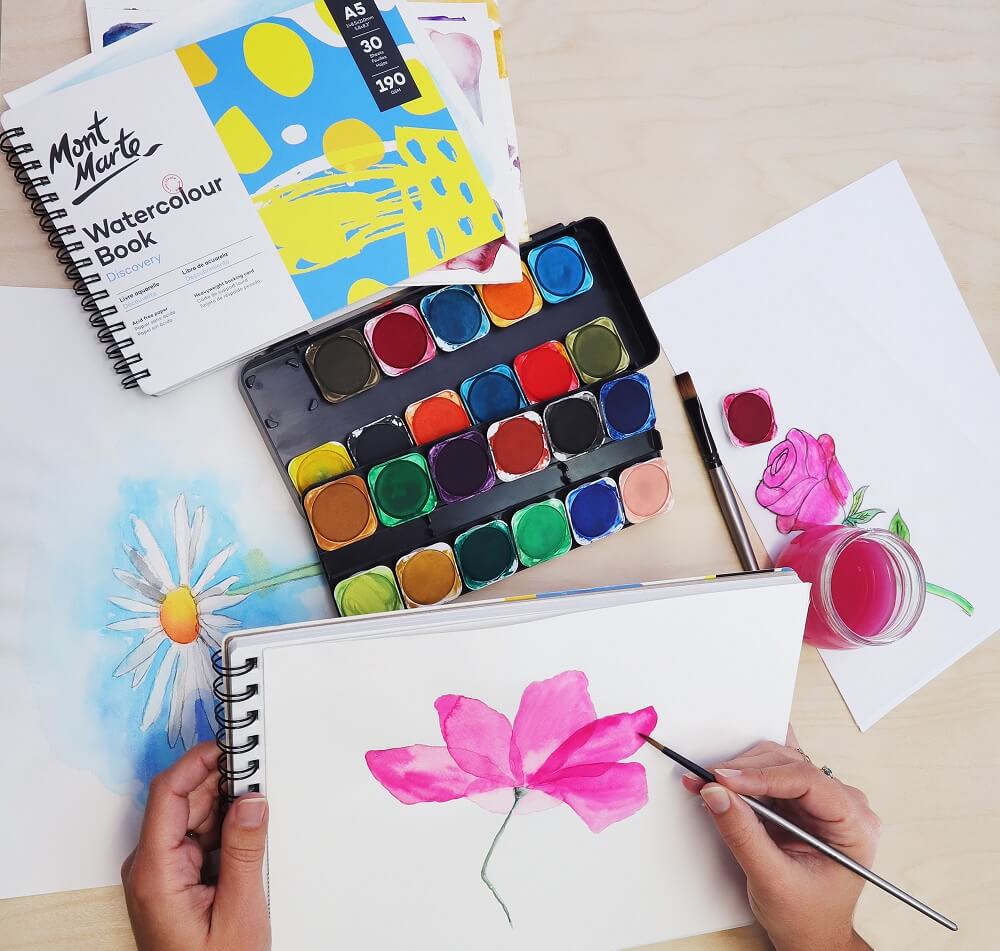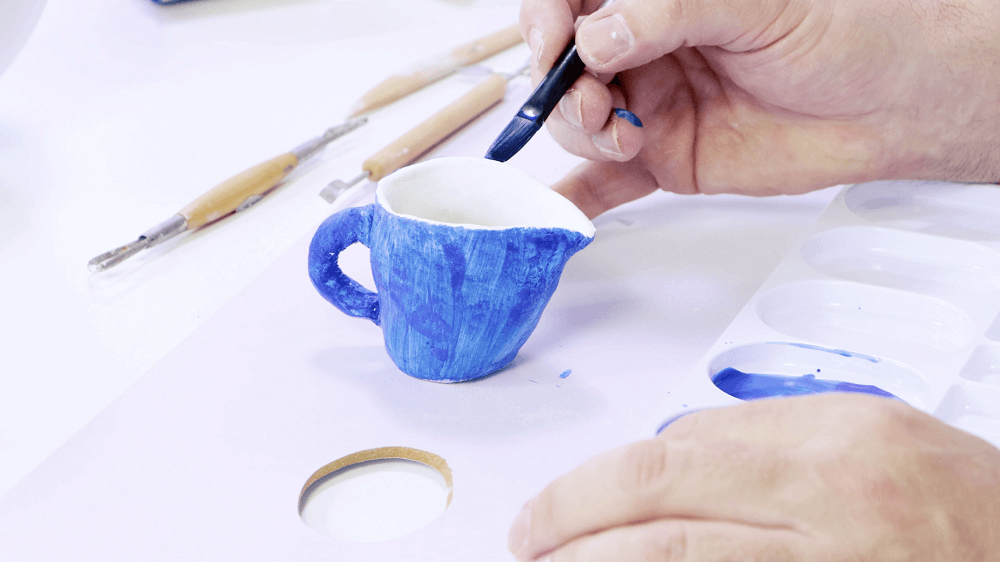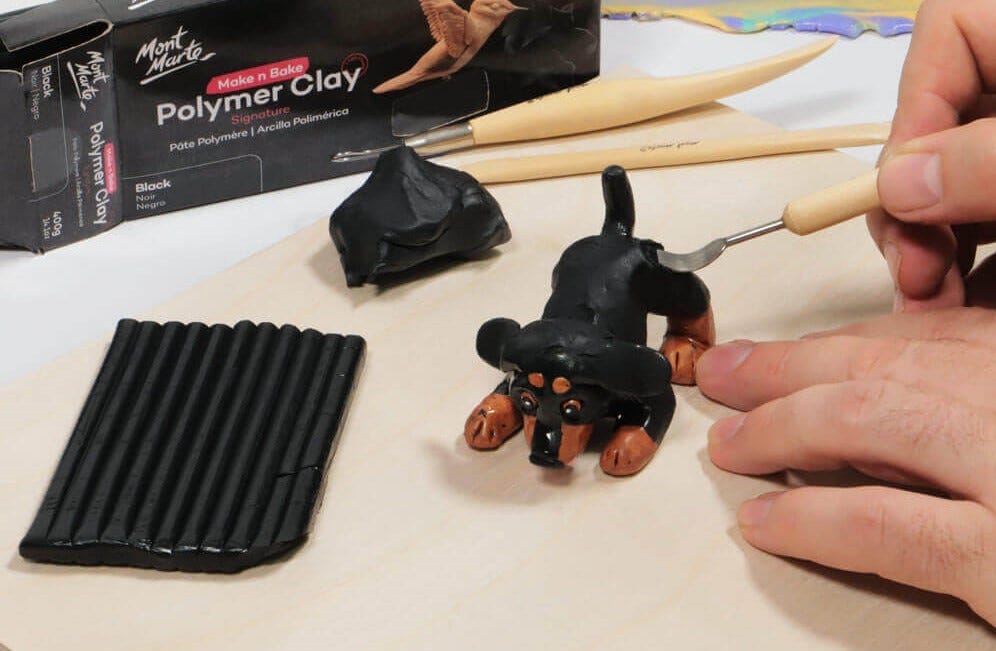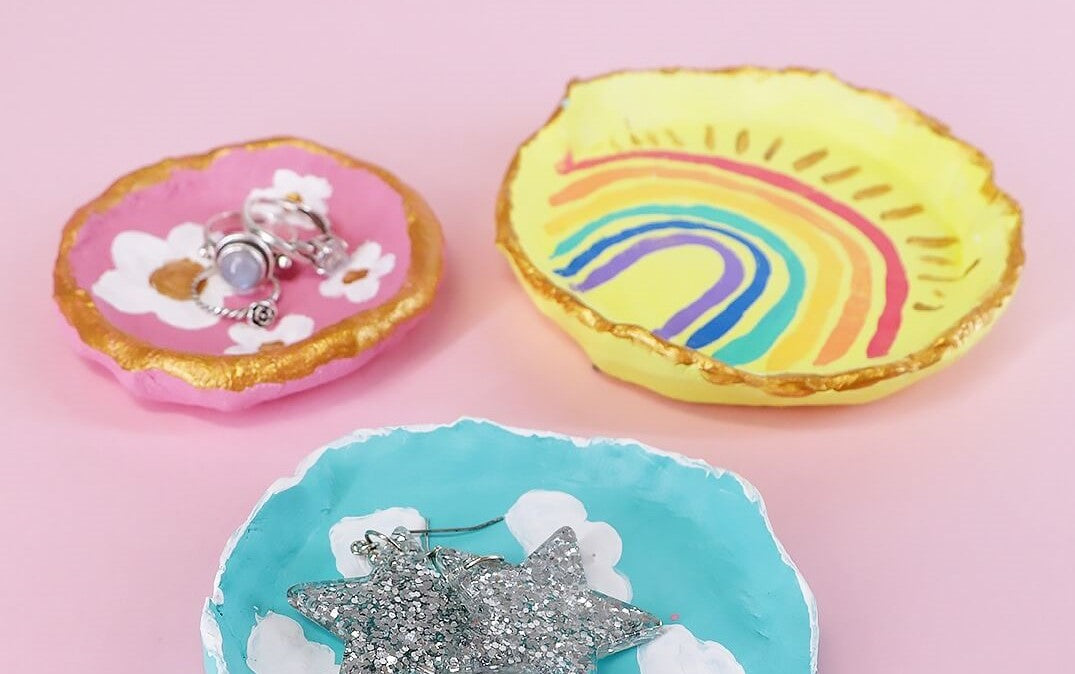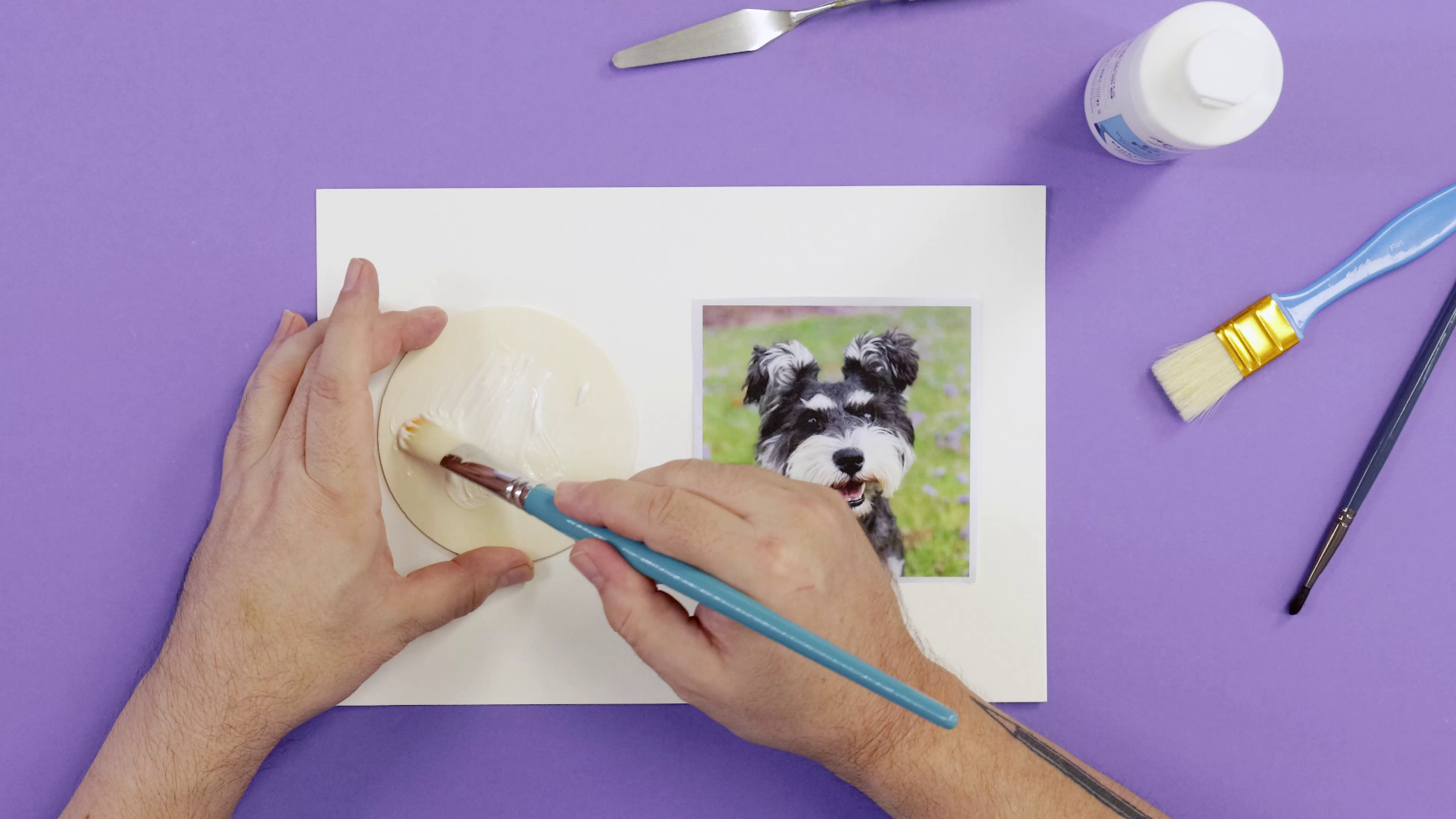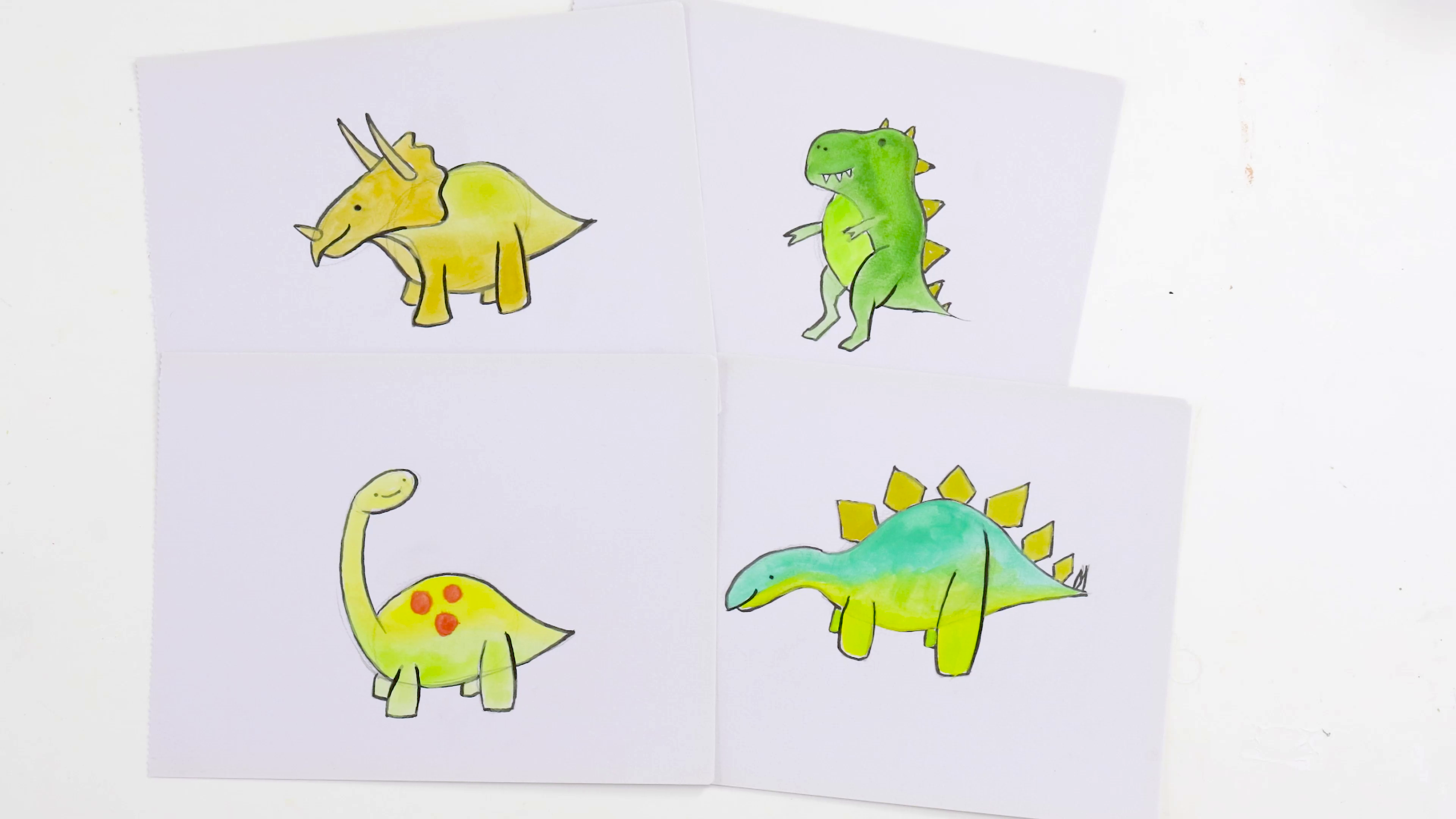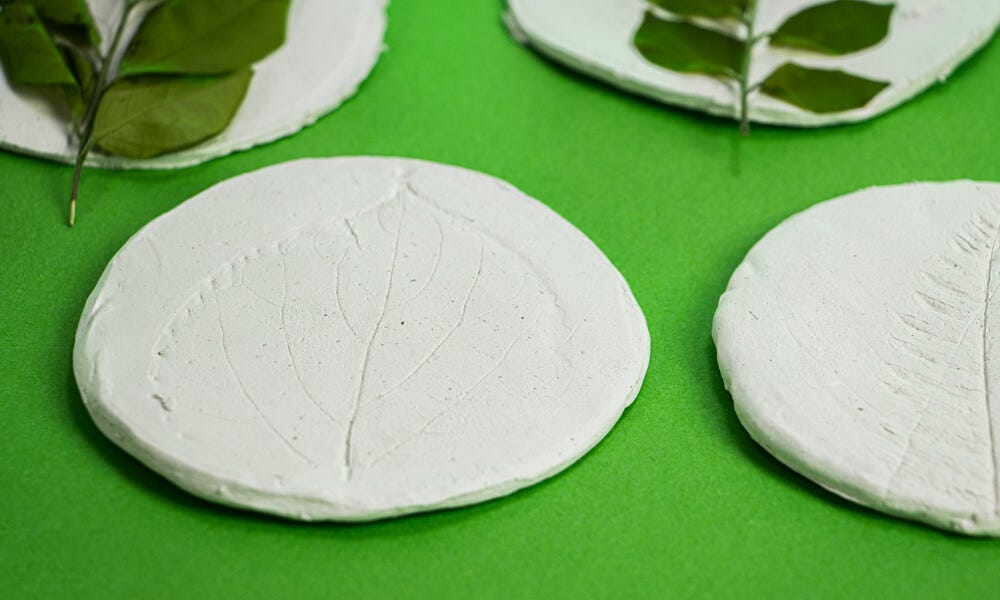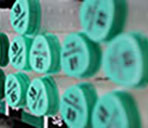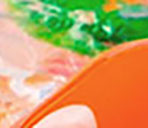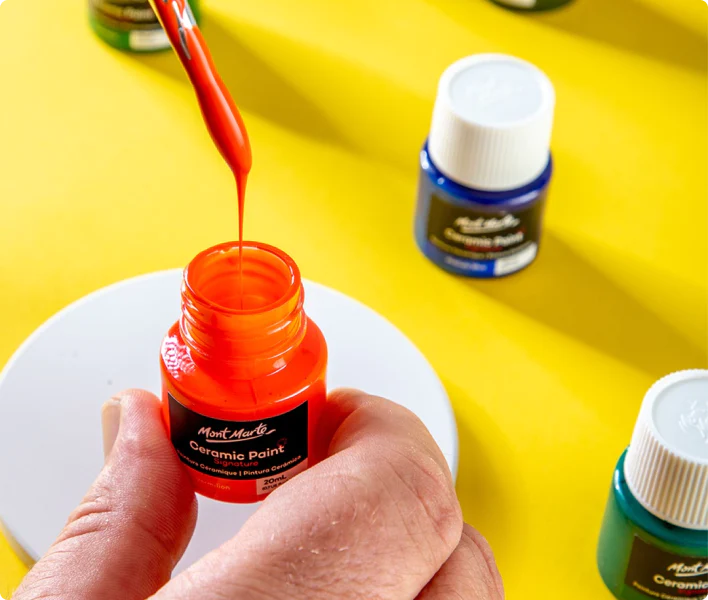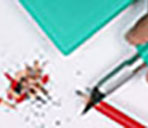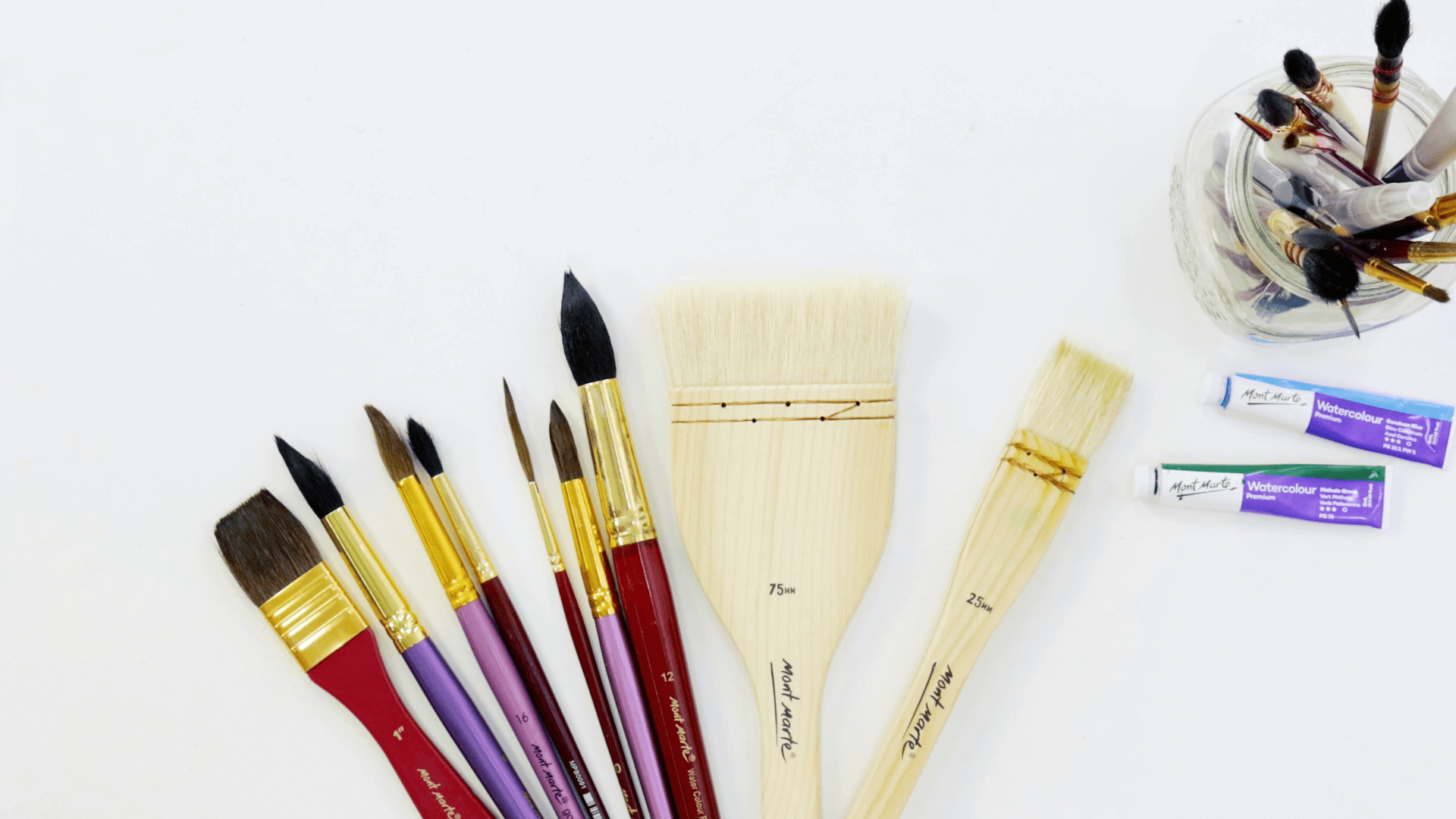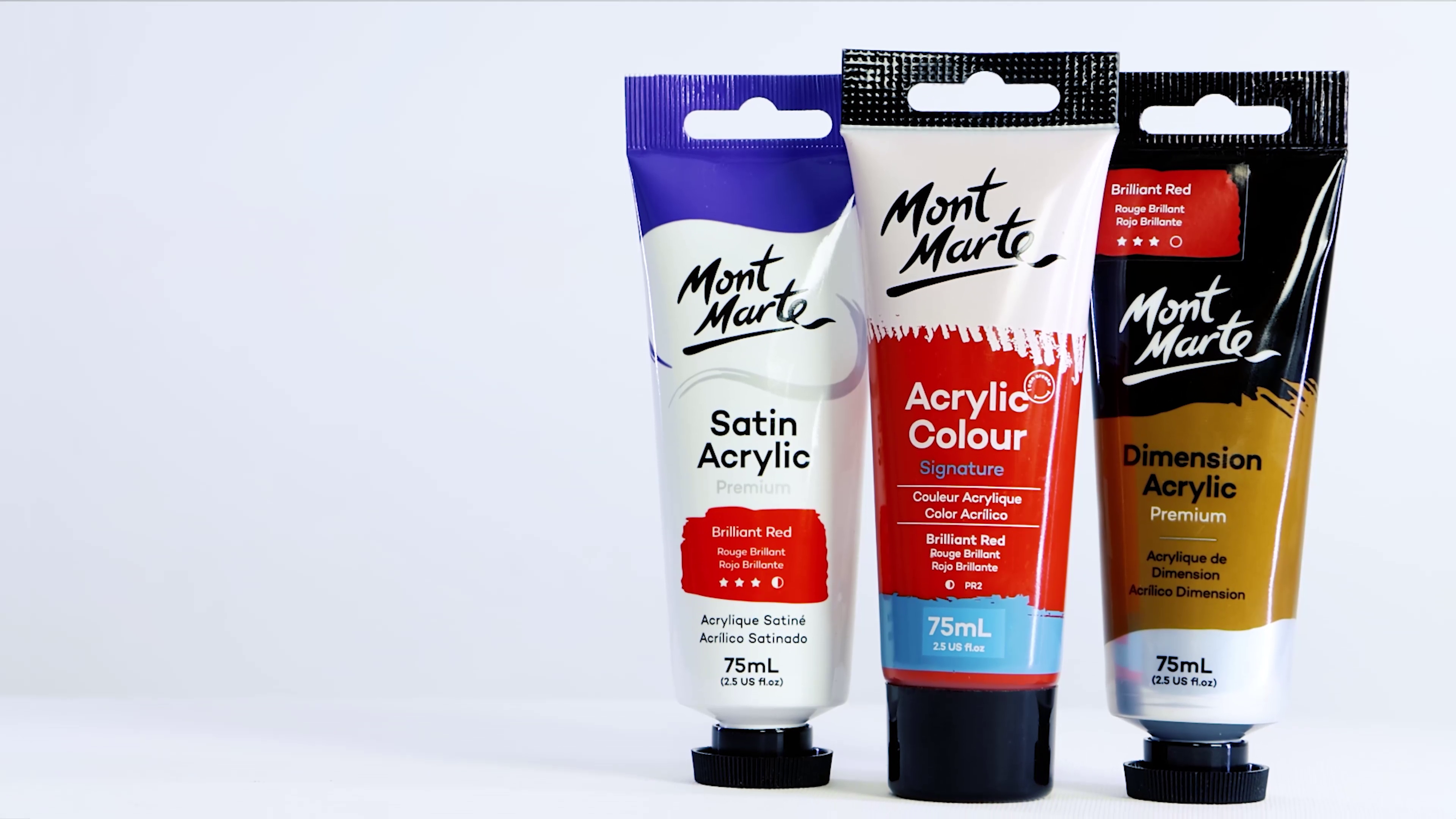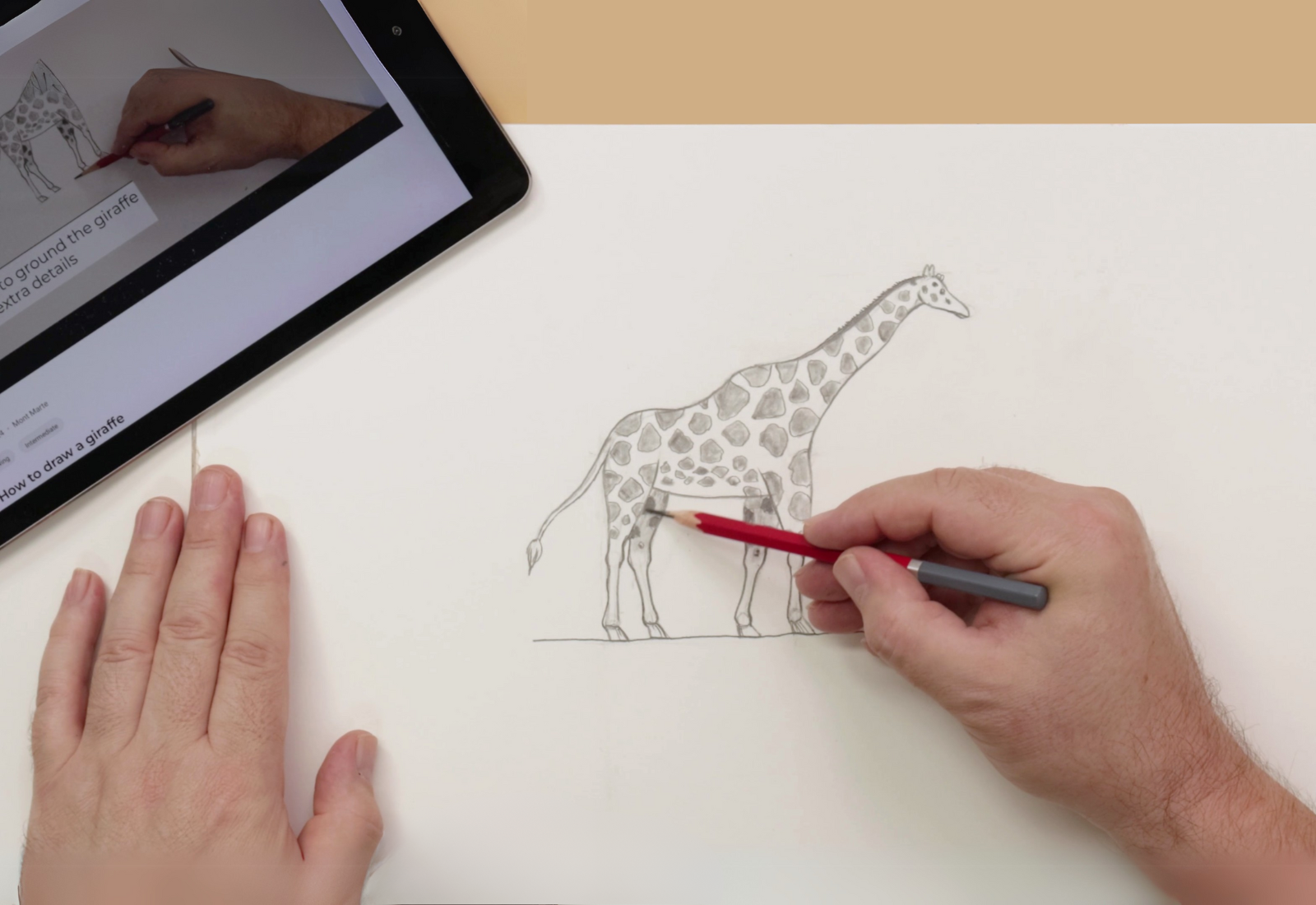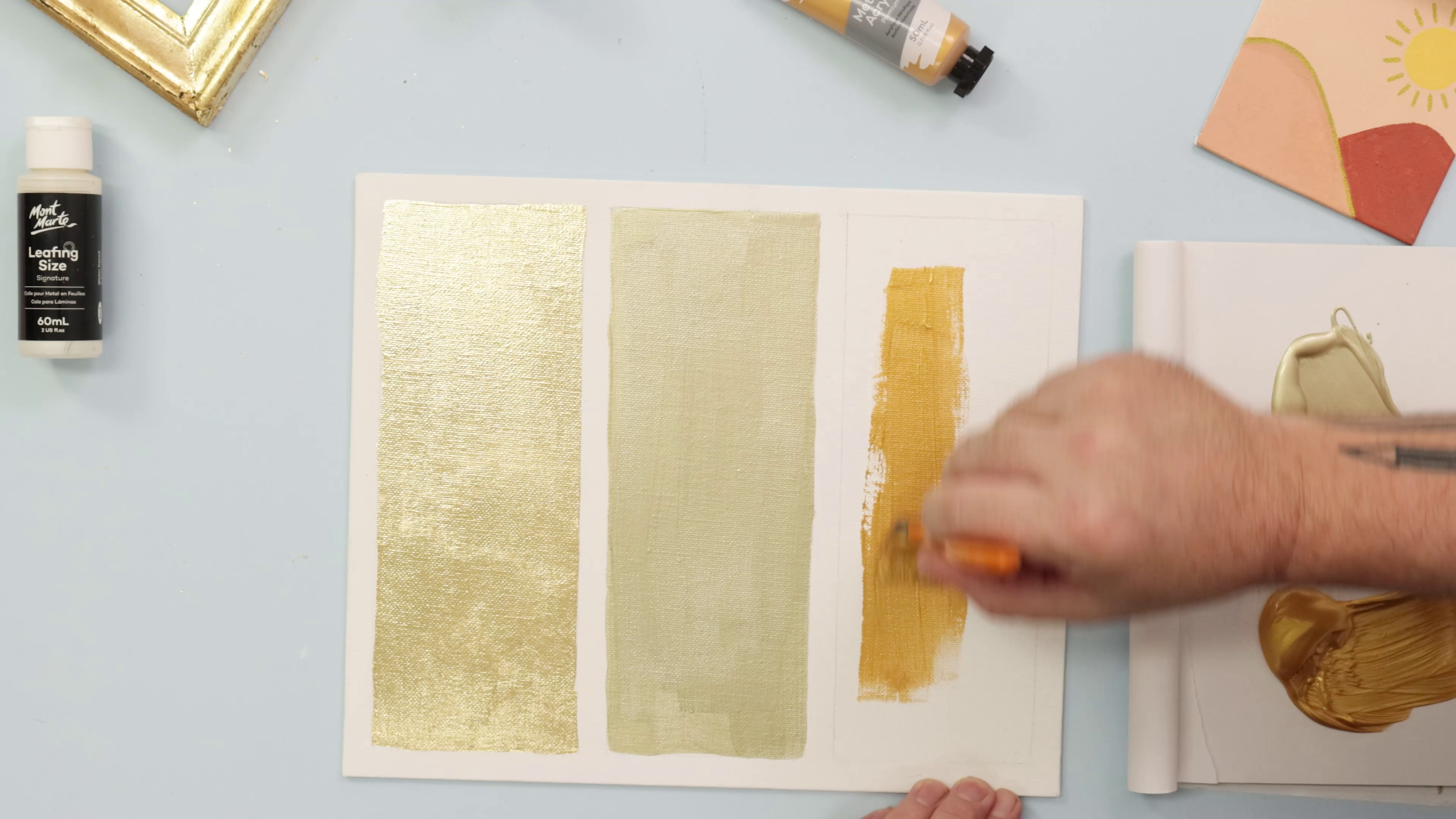Know the difference from a round to a rigger brush with this handy guide to Mont Marte watercolour brushes. In this guide, we’ll walk you through sizes, hairs and types of watercolour brushes so you’re not left in the dark the next time you’re searching for a fresh set of brushes.
Hair:

Sable hair bristles are well known when it comes to watercolour brushes, this is thanks to their soft and fluffy hairs. Because of their soft hairs, the bristles have a nice spring to them and are able to hold a good amount of water and pigment in the base of the brush.
Badger hair brushes have stiff bristles compared to the sable, but they can apply smooth, thick brush strokes. This type of hair also tapers to a fine point and can be a great alternative to a pricey sable brush. A good quality badger hair will have bristles that tapers to a point and will be soft and springy.
Mixed bristles usually contain a mix of hairs, including synthetic, badger, squirrel or goat and although they have less spring than sable brushes, they can help lay down pigment and water easier, particularly for flat brushes.
Goat hair brushes are great for laying down washes. Although the hair doesn’t taper to a fine point the same way a sable or synthetic brush does, goat hair bristles are often used in watercolour, acrylic and even calligraphy because of their sharp bristle point. Goat hair brushes can also be used to even out surfaces or lay washes.
Synthetic brushes such as taklon are a good alternative to natural hair brushes and are also generally more affordable. Because they’re made to replicate natural hair brushes, synthetic bristles hold a point well and can help create precise and detailed marks.
Size:

Like oil and acrylic brushes, the size of watercolour brush bristles will depend on the brand and manufacturer. As a rough guide, the higher the brush number, the bigger the brush will be.
Brushes above a size 6 are great for broad, strokes and covering large surfaces. Brushes from size 4 to 6 are great for painting small areas and those brushes below a size 4 are great for more detailed and intricate work.
Watercolour brush types
Water brushes:

If you enjoy creating on the go, then you’ll love a water brush. These brushes have an opening for water to sit inside the brush, so you don’t have to carry a pot of water around with you. Our Mont Marte watercolour brush range includes two sizes of watercolour brushes that are made from a durable taklon bristle, and each water brush has a pressure sensitive barrel, so you’ll get a steady flow of water as you paint.
-
Sizes:
Fine, medium and broad: 3mm, 4mm and 5mm
Flat: 5mm, 8mm and 10mm
-
Techniques:
- Washes
- Wet on Wet
Round:

A round watercolour brush is a great go-to for beginners and pros because of its versatility. Round brushes can create flat washes as well as fine lines and broad strokes. A round brush can hold pigment and water nicely in the base of the brush and still create fine lines, with its point. Our Mont Marte watercolour brushes come in a range of sizes and are available in sable, mixed bristle and pony hair. Plus, round brushes also work well with gouache paints.
-
Sizes:
0, 2, 4 (in sable)
4, 6, 8 (in mixed bristle)
6, 8, 12, 16 (in pony, see Signature brush series)
-
Techniques:
- Glazing
- Dry brush
- Contoured lines
Rigger:

A rigger brush is a fine, narrow long haired brush. This brush gives greater control for making long, thin brush strokes because of its fine point. But don’t underestimate these thin brushes, they still hold colour well to create those tapered brushstrokes. Our rigger brushes are available in three sizes and made from sable hair.
-
Sizes:
2, 6, 10.
-
Techniques:
- Glazing
- Dry brush
- Contoured lines
Flat brushes:

When you think of watercolour brushes, you probably think of the fluffy, round brushes and less of a thick, flat brush. But these brushes are also a great go-to, especially if you’re looking to create a clear, concise line. These square ended brushes are great for colour blocking too, and laying broad washes to your works.
-
Sizes:
3, 4, 6, 8, 10, 12 (see Signature brush series)
-
Techniques:
- Colour blocking
- Broad washes
Mop brushes:

If you need to cover an area quickly, a mop brush will work wonders. These brushes have a large, round head and they can create a nice, steady line thanks to the pointed tip. Or it can be used to lay down colour quickly with it’s loose, mop style bristles. Our Mont Marte mop brushes are available in a range of sizes and are available in three different hair types: taklon, mixed bristle and pony hair.
-
Sizes:
0, 2, 4, 6, 8, 10, 12, 14, 16, 24
-
Techniques:
- Wet brush
- Dry brush
- Glazing
- Washes
Detailer brushes:

As the name would suggest, these brushes are great for painting precise areas and fine detailing because of their short and thin bristles. When it comes to watercolour, our Mont Marte watercolour brush detailer is available in a 15pc set, so you’ll have everything you need to create intricate effects.
-
Sizes:
Detail Brush Collection 15pc
-
Techniques:
- Outlines and fine lines
- Detailing
Fat Liner brushes

The fat liner watercolour brush is a versatile brush that combines a fine liner brush with a mop brush. This brush holds water well and can create both broad washes and more detailed work so you get the best of both worlds.
-
Sizes:
6, 10, 16 (Available in a Premium set).
-
Techniques:
- Outlines and fine lines
- Detailing
- Glazing
Whether you’re looking for a new watercolour brush or checking out our range, we hope that you feel inspired to create something new.
Browse the Mont Marte watercolour brush range here. Or if you’re looking to put your brushes to good use, then follow along with our latest watercolour lesson and create this fun fruit painting. If you’re looking for a challenge try our lesson in painting glass in watercolour.


